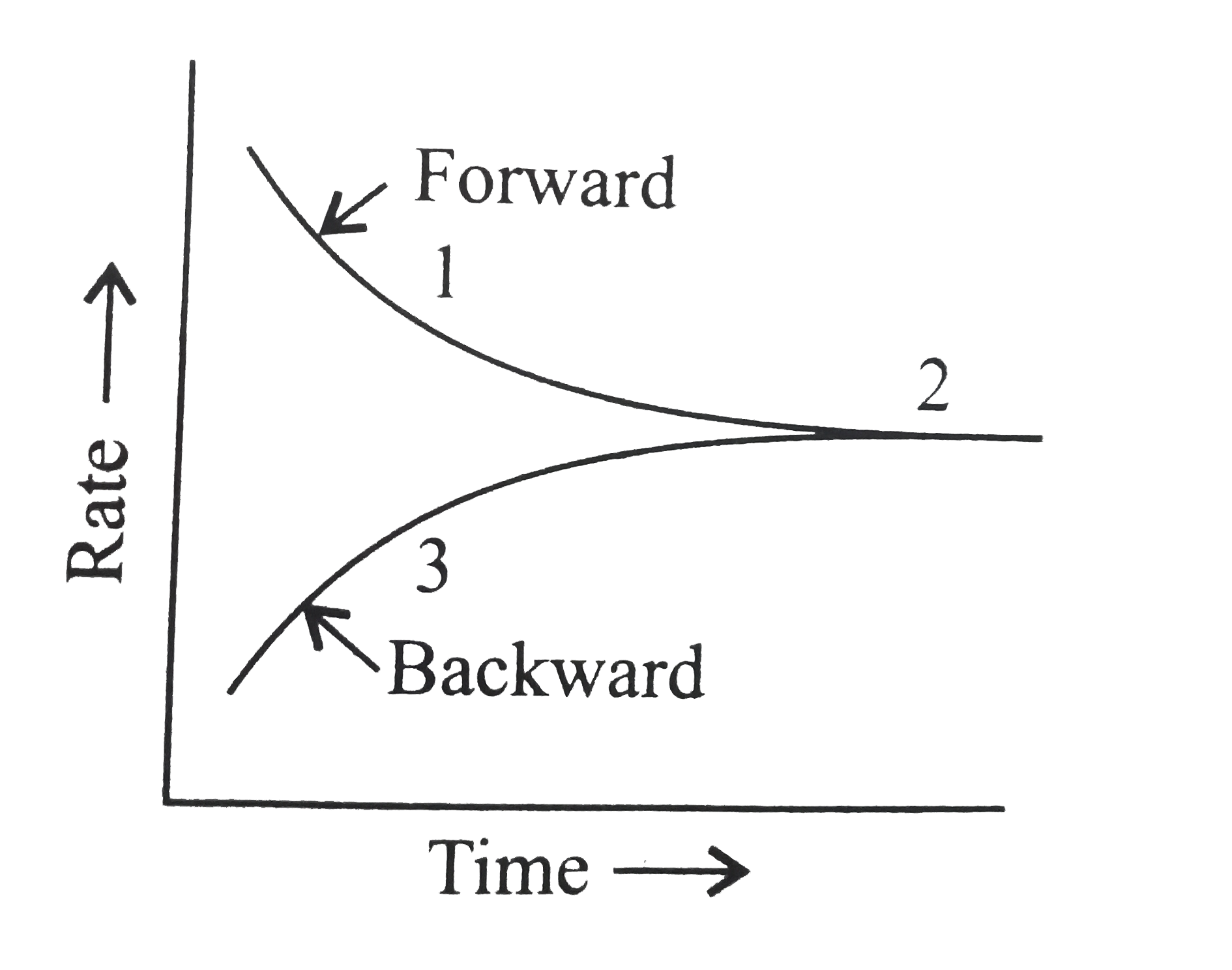For an equilibrium reaction if the value of Kc>>1, then the reaction favoured more towards
backward
forward
equilibrium will be obtained
reaction will stop
The correct Answer is:B
if Kc>>>1 then reaction will be more favoured towards forward direction
Topper's Solved these Questions
- REACTION KINETICS AND CHEMICAL EQUILIBRIUMBOOK - CENGAGE CHEMISTRYCHAPTER - REACTION KINETICS AND CHEMICAL EQUILIBRIUMEXERCISE - CONSOLIDATED EXERCISE
4 Videos
- REACTION KINETICS AND CHEMICAL EQUILIBRIUMBOOK - CENGAGE CHEMISTRYCHAPTER - REACTION KINETICS AND CHEMICAL EQUILIBRIUMEXERCISE - MULTIPLE CHOICE QUESTIONS WITH ONE OR MORE THAN ONE CORRECT ANSWER
5 Videos
- REACTION KINETICS AND CHEMICAL EQUILIBRIUMBOOK - CENGAGE CHEMISTRYCHAPTER - REACTION KINETICS AND CHEMICAL EQUILIBRIUMEXERCISE - MANDATORY EXERCISE (SET I)
23 Videos
- RADIOACTIVITYBOOK - CENGAGE CHEMISTRYCHAPTER - RADIOACTIVITYEXERCISE - OLYMPIAD AND NTSE LEVEL EXERCISES
10 Videos
- THERMODYNAMICS AND THERMOCHEMISTRYBOOK - CENGAGE CHEMISTRYCHAPTER - THERMODYNAMICS AND THERMOCHEMISTRYEXERCISE - OLYMPIAD AND NTSE LEVEL EXERCISES
10 Videos
Similar Questions
For an equilibrium, H2(g)+I2(g)⇔2HI((g)), if 'x' is the degree of dissociation at equilibrium, derive the value of Kc for the given reaction. Also give Kc for the equilibrium, if the reaction is started with 1 mole of hydrogen iodide.
View SolutionFor a reaction if Kp>Kc , the forward reaction is favoured by (T>15K)
View Solution
Knowledge Check
For a reaction if Kp>Kc , the forward reaction is favoured by (T>15K)
ALow pressureBhifh pressureCHigh temperatureDLow temperatureThe equilibrium constant of the reaction (Kc) when the reaction is conducted in a one litre vessel was found to be 2.5×10−3. If the reaction is conducted at the same temperature in a 2 litre vessel then the value of Kc is
A6.25×100−4B1.25×10−3C2.5×10−3D5×10−3For a reaction if Kp>Kc , the forward reaction is favoured by (T>15K)
AHigh temperatureBLow temperatureCLow pressureDHigh temperature
Mass action rato or reaction quotient Q for a reaction can be calculate using the law of masss action
A(g)+B(g)⇔C(g)+D(g)
Q=[C][D][A][B]
The value of Q decides whether the reaction is at equilibrium or not.
At equilibrium, Q=K
For an equilibrium process, Q≠K
when Q>K, reaction will favour backward direction and when Q<K, it will favour direction.
Answer the following questions:
For the reaction:
2A+B⇔3C at 298K,Kc=40
A 4L vessel contains 2,1, and 4 mol of A, B and c, respectively. The reaction at the same temperature
View SolutionMass action rato or reaction quotient Q for a reaction can be calculate using the law of masss action
A(g)+B(g)⇔C(g)+D(g)
Q=[C][D][A][B]
The value of Q decides whether the reaction is at equilibrium or not.
At equilibrium, Q=K
For an equilibrium process, Q≠K
when Q>K, reaction will favour backward direction and when Q<K, it will favour direction.
Answer the following questions:
In the reaction:
NH4Cl(g)⇔NH3(g)+HCl(g)
a graph is plotted to show that the variation or the rate of forward and backward reaction against time.
Which of following is correct?

View SolutionMass action rato or reaction quotient Q for a reaction can be calculate using the law of masss action
A(g)+B(g)⇔C(g)+D(g)
Q=[C][D][A][B]
The value of Q decides whether the reaction is at equilibrium or not.
At equilibrium, Q=K
For an equilibrium process, Q≠K
when Q>K, reaction will favour backward direction and when Q<K, it will favour direction.
Answer the following questions:
For the reaction:
2A+B⇔3C at 298K,Kc=40
A 4L vessel contains 2,1, and 4 mol of A, B and c, respectively. The reaction at the same temperature
View SolutionMass action rato or reaction quotient Q for a reaction can be calculate using the law of masss action
A(g)+B(g)⇔C(g)+D(g)
Q=[C][D][A][B]
The value of Q decides whether the reaction is at equilibrium or not.
At equilibrium, Q=K
For an equilibrium process, Q≠K
when Q>K, reaction will favour backward direction and when Q<K, it will favour direction.
Answer the following questions:
In the reaction:
NH4Cl(g)⇔NH3(g)+HCl(g)
a graph is plotted to show that the variation or the rate of forward and backward reaction against time.
Which of following is correct?

View SolutionIn which of the following equilibrium system the rate of the backward reaction is favoured by increase of pressure
View Solution
